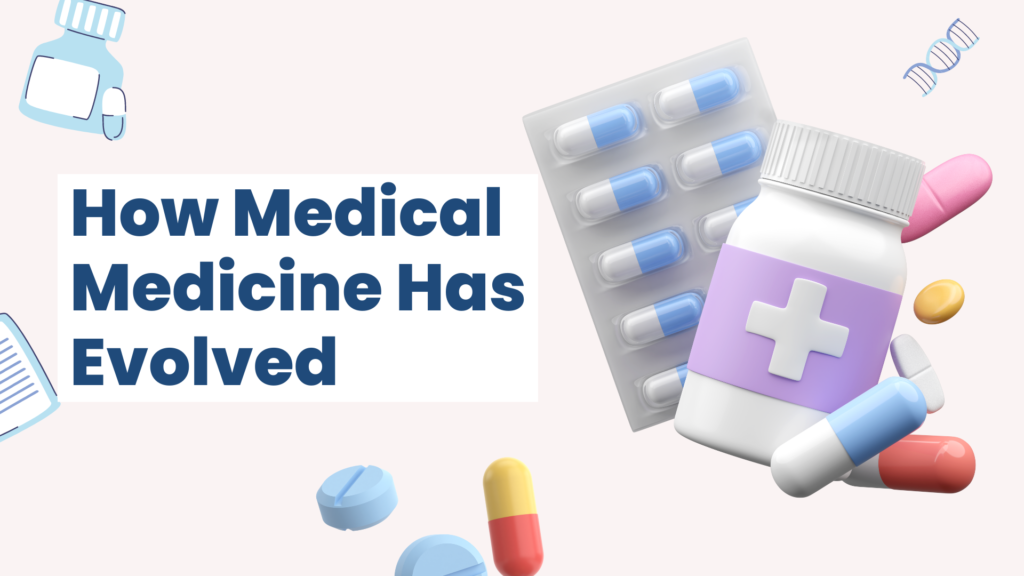Medical medicine stands out as a cornerstone of effective and reliable treatment. Also known as allopathic medicine, it combines scientific rigor with practical application to address a wide range of health issues. From innovative medications to advanced surgical techniques, medical medicine has significantly transformed how we approach health and disease. Its role is not just about treating symptoms but also about enhancing overall well-being through evidence-based practices.
What is Medical Medicine?
At its core, medical medicine is the conventional approach to healthcare that many of us are familiar with. It involves treatments and procedures based on scientific evidence, including medications, surgeries, and diagnostic tests. Medical professionals, such as doctors and nurses, use this approach to address health issues, manage symptoms, and improve overall health. It’s all about using proven methods to help us live healthier lives.

How Medical Medicine Has Evolved
Medical medicine is not static; it’s a field that continuously evolves and adapts. Over the years, we’ve witnessed some incredible advancements:
- Breakthrough Medications: From antibiotics that fight infections to new drugs for chronic diseases like diabetes, the development of pharmaceuticals has been nothing short of revolutionary. These advancements have dramatically improved the quality of life for countless people.
- Technological Innovations: Technology has become an integral part of medical medicine. Think of how electronic health records (EHRs) have streamlined patient care, or how telemedicine has made it possible to consult with doctors from the comfort of your home. These innovations make healthcare more accessible and efficient.
- Genomic Medicine: This cutting-edge field studies how our genes affect our health. By understanding our genetic makeup, doctors can tailor treatments to each individual, leading to more effective and personalized care.
Blending Medical Medicine with Holistic Health
While medical medicine forms the foundation of our healthcare system, there’s a growing appreciation for holistic health approaches. Holistic health focuses on treating the whole person—mind, body, and spirit—rather than just addressing symptoms. Combining these approaches with conventional medicine can offer a more rounded approach to health.
- Complementary Therapies: Many people are turning to therapies like acupuncture or yoga alongside their conventional treatments. These practices can support overall well-being and help manage symptoms more effectively.
- Preventative Care: Emphasizing prevention rather than just treatment is a principle shared by both medical and holistic approaches. Regular check-ups, vaccinations, and healthy lifestyle choices can prevent diseases before they start.
- Patient-Centered Care: Modern medicine is increasingly focusing on the needs and preferences of patients. This patient-centered approach aligns well with holistic principles, encouraging a more collaborative relationship between healthcare providers and patients.
Facing Challenges and Looking Ahead
Despite its many successes, medical medicine faces some significant challenges. Healthcare costs are rising, and access to care can be uneven. Additionally, as medical knowledge expands, healthcare professionals must continually learn and adapt.
Looking forward, the future of medical medicine holds exciting possibilities:
- Precision Medicine: By personalizing treatments based on individual genetics and lifestyle, precision medicine aims to make healthcare more effective and tailored to each person’s unique needs.
- Healthcare Equity: Efforts are underway to ensure that everyone, regardless of background, has access to quality healthcare. Addressing these disparities is crucial for a healthier future.
- AI and Data Analytics: Artificial intelligence and data analytics are poised to revolutionize medical medicine. They can enhance diagnostic accuracy, predict outcomes, and help design better treatment plans.
Conclusion
Medical medicine is a vital part of modern healthcare, driving progress and improving patient care through scientific research and evidence-based practices. By embracing both conventional and holistic methods, we can look forward to a future where healthcare is not only more effective but also more attuned to the needs of every individual.
For those interested in exploring how medical medicine continues to shape our health and well-being, resources like Arogya Aushadhi provide valuable insights into the latest developments and practices.
FAQS
- What is medical medicine?
Medical medicine, also known as allopathic medicine, is a conventional approach to healthcare that focuses on diagnosing, treating, and preventing diseases using scientifically proven methods. It includes the use of medications, surgical procedures, and other medical interventions based on rigorous research and clinical trials.
- How does medical medicine differ from alternative medicine?
Medical medicine is grounded in evidence-based practices and scientific research, while alternative medicine often includes therapies that may not have the same level of scientific validation. Medical medicine relies on standardized treatments and procedures, whereas alternative medicine may use approaches such as herbal remedies or acupuncture, which are typically less regulated and studied.
- What role does preventative care play in medical medicine?
Preventative care is a key component of medical medicine, focusing on early detection and prevention of diseases before they develop or worsen. This includes regular screenings, vaccinations, and lifestyle recommendations to help maintain health and prevent illness.
- Can medical medicine and holistic health practices be used together?
Yes, medical medicine and holistic health practices can complement each other. While medical medicine addresses specific health issues with evidence-based treatments, holistic practices can enhance overall well-being and support the body’s natural healing processes.
- What are the main challenges facing medical medicine today?
Medical medicine faces several challenges, including rising healthcare costs, unequal access to care, and the need for continuous education and adaptation by healthcare professionals. Additionally, as medical knowledge expands, keeping up with the latest research and innovations can be demanding.

